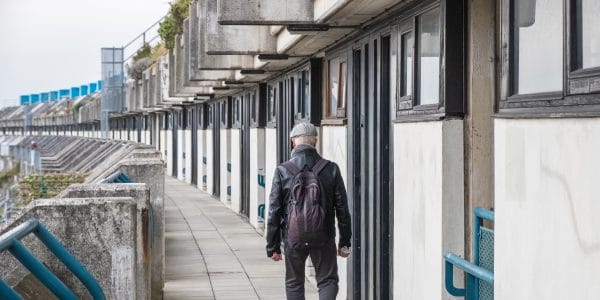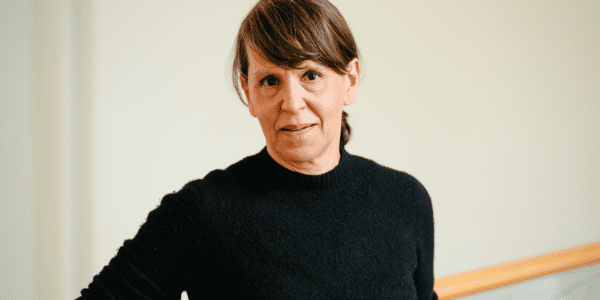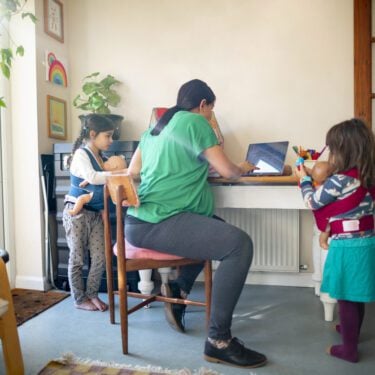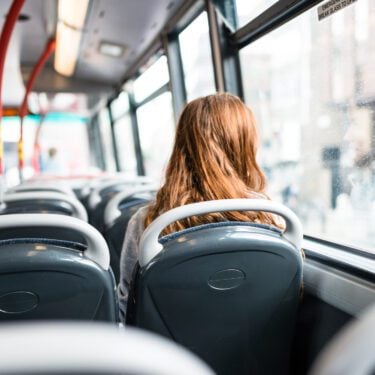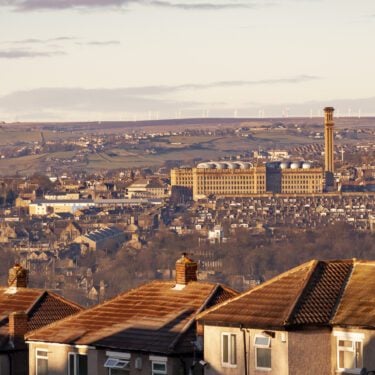



11/06/21
4 min read
In the third part of our series on well-being, people and places, Dr Miguel Ramos, Dr Matthew Bennett, Professor Douglas S. Massey and Professor Miles Hewstone explore how individuals adapt to changes in society over time, focusing on the effects of religious diversity on quality of life.
Global modernisation has dramatically changed the ethnic and religious composition of many modern societies. These demographic changes are now having a major impact across all spheres of life, including the workplace, neighbourhood environments, schools, and nations. Within the social sciences, these changes have been reflected in a growing concern about the implications of social diversity. This concern has also been at the forefront of recent public and political debate regarding major geopolitical events such as Brexit and the European refugee-crisis. Much has been written about this topic, but there is a question that remains unanswered: are human beings able to adapt to this unprecedented change in social diversity?
Theory on human evolution and social diversity largely contends that the human brain has evolved a predisposition to protect ‘our’ own groups, as survival was dependent on cooperation with members of that group. Survival, according to this view, depended on protecting the group from the potential dangers posed by unknown ‘others’ – who were approached with caution. This is perhaps the reason why research has found that trust and social cohesion are lower in diverse communities and why, in experimental labs, individuals interacting with unknown members of a different social group show increased stress and anxiety.
It is generally accepted that these predispositions play a role in the formation of groups and the societal structures we live in. But these predispositions might be incompatible with fast-changing societies, where people living in diverse neighbourhoods are having contact with new cultures, norms, and values.
Yet, despite people’s predisposition towards those with whom they share a group membership (i.e., the ‘in-group’), we see that cooperation is often extended to those identified as being outside those groups (i.e., the ‘outgroup’). Indeed, biologists and anthropologists have long believed that humans fared better than other species due to contact with ‘unknown others’, bringing about a variety of benefits that cannot be attained by ‘in-group’ interactions alone. Examples include increased genetic diversity owing to intergroup mating, the sharing of knowledge and information, and access to new resources.
At a first glance, protecting our own group seems to be at odds with approaching unknown groups, who might be friends or foes. However, we believe that humans juggle these two tendencies at different points in time during exposure to social diversity. While the tendency to protect our own groups might emerge initially upon first contact, with time, individuals start to show an orientation towards mixing and, in doing so, extract benefits from these interactions. For these reasons, we believed that initial contact resulting from diversity may prove challenging, but that these challenges should be overcome with time.
Religious diversity and quality of life
To test these ideas, in a Nuffield Foundation funded project, we conducted a large and ambitious study examining 22 years of publicly available psychological, sociological, and demographic data from multiple waves of three extensive surveys – the World Values Survey, the European Social Survey, and the Latino Barometro. Together the three datasets included more than 338,000 respondents interviewed in 100 countries across the world. With this data, we analysed the short-term and long-term effects of religious diversity on quality of life as perceived by individuals at different points in time. We focused, in this initial work, on religious diversity, because we could best link data on changes in religious diversity over time to the countries included in the three large surveys.
We used the answers to questions about life satisfaction, happiness, and health to form a quality of life measure. Religious diversity was computed for every country and year of available data using information from the representative samples of the analysed surveys. We then measured how changes in religious diversity were associated with quality of life, while also accounting for a set of additional variables that typically influence quality of life (e.g., sex, education, age). We found that, in the short-term, individuals react negatively to changes in religious diversity, experiencing a dip in quality of life. However, over time, individuals adapted to changes in society and begin to reap the benefits of diversity, with quality of life returning to initial levels.
But why is this the case? We examined the psychological mechanisms involved in these processes using questions in the analysed surveys about trust in others in society and frequency of contact with ‘outgroups’. We found that the initial negative effects were being driven by a reduction in trust of neighbours and out-groups in countries with increased religious diversity. However, after a period of four to eight years, individuals started to report mixing with people from a different background, which improved their trust in others around them, promoting a positive impact on their quality of life. Importantly, the initial negative effect, whereby diversity was associated with reduced trust, was fully cancelled out by the positive effect of mixing with members of different groups.
The positive effect of social diversity
These findings provide evidence-based optimism in showing that, despite initial resistance, individuals and societies can cope with the documented challenges of diversity. They also show that, by focusing only on the short term, we may draw an inaccurate, pessimistic conclusion about the impact of diversity. An increase in social diversity offers the opportunity for members of different groups to engage in contact, get to know each other, and cooperate. When this occurs, this positive effect of diversity trumps the negative, trust-decreasing effect of diversity.
About the authors
Miguel Ramos is a Lecturer at the University of Birmingham, UK. He received his PhD in Social Psychology from the University of St. Andrews, UK. His research investigates the impact of social diversity on outcomes including intergroup contact and wellbeing and health.
Matthew Bennett is a Professorial Research Fellow at the University of Sheffield, UK. He received his D.Phil in Sociology from Nuffield College, University of Oxford, UK. His research interests include prosocial behavior, social care and the impact of social diversity.
 Professor of Sociology and Public AffairsPrinceton School of Public and International Affairs
Professor of Sociology and Public AffairsPrinceton School of Public and International Affairs
Douglas Massey is Henry G. Bryant Professor of Sociology and Public Affairs, with a joint appointment in the Princeton School of Public and International Affairs. His research interests include international migration, race and housing, discrimination, education, and urban poverty.
Miles Hewstone is Emeritus Professor, University of Oxford. He has published extensively on a wide range of topics in social psychology, focusing on prejudice and stereotyping, intergroup contact, and the reduction of intergroup conflict.




